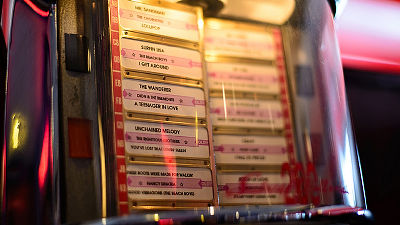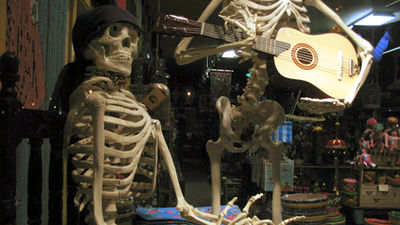What was the Loudness War in the music industry like?

By
'Loudness' is a musical term that simply means 'loudness.' Around the 1980s, the trend of 'loudness' was introduced in the music world along with the technological advances in music equipment, and many songs with excessively high loudness appeared. The controversy over 'appropriate loudness' was recorded as the 'Loudness War,' and albums by prominent artists such as Led Zeppelin , Oasis , Metallica , Red Hot Chili Peppers , and Arctic Monkeys became 'The Loudness War Sacrifice.' Person '.
Gateway Mastering & DVD
https://web.archive.org/web/20090131045144/http://gatewaymastering.com/gateway_LoudnessWars.asp
The Loudness Wars: Why Music Sounds Worse: NPR
https://www.npr.org/2009/12/31/122114058/the-loudness-wars-why-music-sounds-worse
Loudness is one of the sensations that refers to the 'sound intensity felt by hearing.' Since human hearing sensitivity varies depending on the frequency and the hearing itself varies depending on the person, the loudspeaker is defined as the quantified value obtained by correcting the 'air vibration intensity' which is the actual volume. Loudness is used in the music industry as a term for 'loudness.' The music industry has been engaged in numerous attempts and controversies over such loudness.
The ' jukebox ', which gained popularity around 1940, did not have the function of 'adjusting the volume', but only able to 'sound the loudness set on the record itself'. Records with a high loudness set out loud and more prominent than other records, creating the trend of 'loudness is better.'

By
In the age of cassette tapes, there was a physical limitation on the loudness, as the vinyl of the cassette tape was damaged enough to make it impossible to play the song if the loudness of the song was extremely high. However, with the advent of digital media such as compact discs (CDs) , physical restrictions were lifted and the loudness war intensified.
In the 1990s when CDs spread to ordinary households, the music industry, which began to optimize music for CDs, became more and more 'increased in loudness.' Oasis' second album ' Morning Glory ' is one of the most popular works. The sound recorded on this album had loudness raised to the limit of the format.
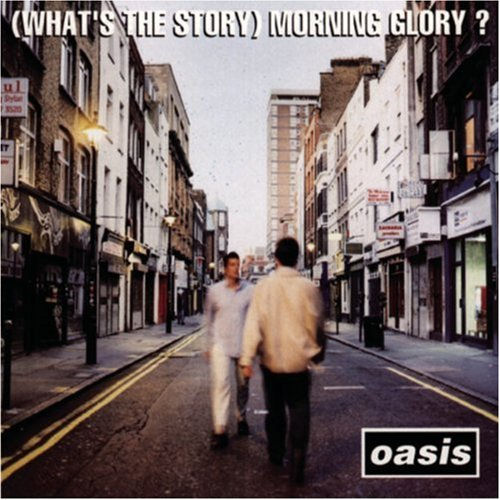
In the 2000s, which was called the peak of the loudness war, many CDs appeared that had increased loudness enough to cause “sound distortion” called clipping . Metallica's Death Magnetic, among others, was hit by barrage from Rolling Stone , The Wall Street Journal , and Guardians . Regarding Death Magnetic, Rolling Stone magazine says, 'The sound of the game' Guitar Hero 'is better than the CD', and the Wall Street Journal says, 'Even heavy metal fans who should love loud sounds are too loud. Make a complaint. '
Fans Complain After “Death Magnetic” Sounds Better On “Guitar Hero” Than CD-Rolling Stone
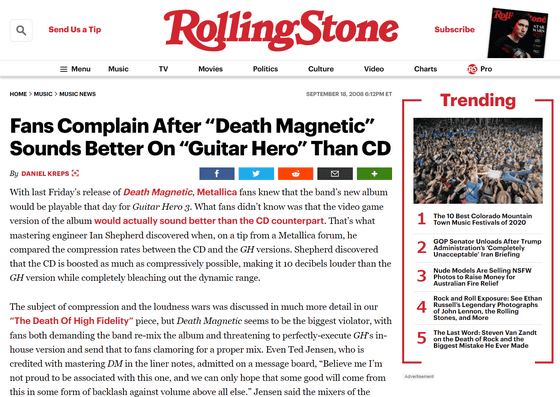
ABBA's ' Super Trouper ' sound waveform clearly shows the transition of loudness due to the times. The first released LP record of 1980 shows the following waveform ...
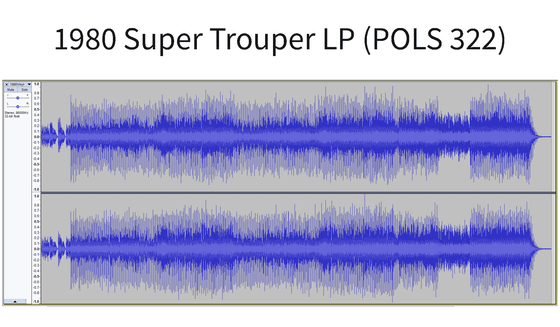
The upper and lower width of the waveform is larger on the 2001 remastered CD.
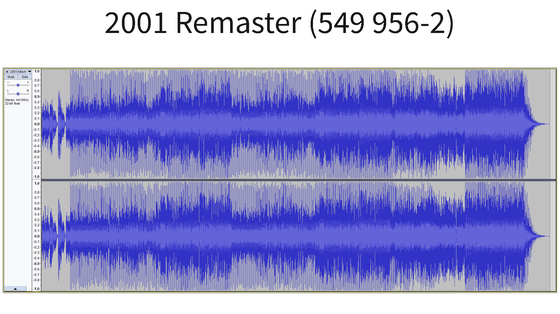
The best version of 2005 has a thicker upper and lower width of the waveform so that it can be said that it is different from the time of release. This change indicates that music publishers have increased their loudness as they re-released their songs.
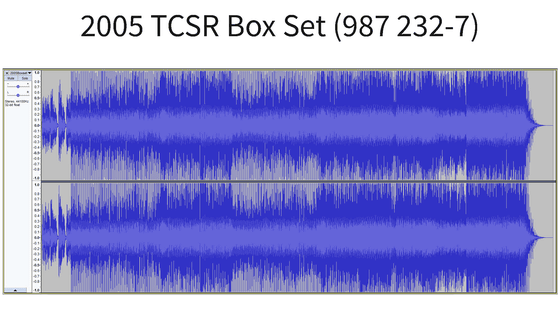
It was around the end of the 2000s that the trend of “high loudness supremeism” was stopped.
In 2010, a study was published that said the size of loudness has nothing to do with sales (PDF file) , and a new form of music distribution, ' streaming, ' appeared. Streaming providers have chosen to 'normalize loudness' for songs delivered on the service to reduce variations in volume between songs. Loudness has moved toward normalization throughout the music industry. In 2013, renowned mastering engineer Bob Katz declared the end of the Loudness War on his website.

By
'At the height of high loudness, around 2006, Bob Dylan , a 2016 singer who won the Nobel Prize for Literature for the first time in 2016, said,' Modern music has too much sound. Part 'and' vocal part, '' there is no distinction between the songs of the part, '' had complained .
The Loudness War page on Wikipedia includes Arctic Monkeys ' Whatever People Say I Am, That's What I'm Not , Red Hot Chili Peppers' Californication , and Taylor Swift 's 1989. , An album whose loudness is too high, has been listed as a 'victim of the loudness war.'
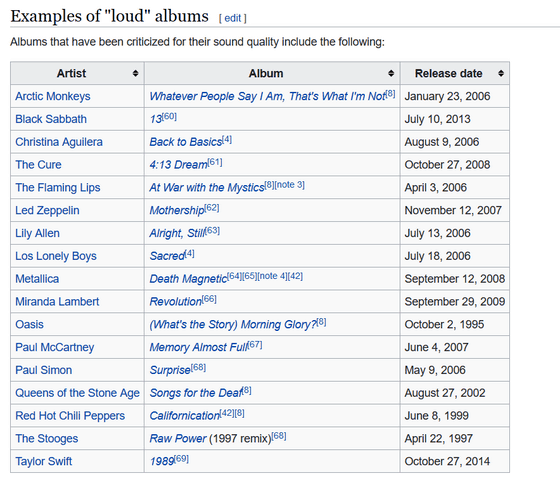
Related Posts:
in Creation, Posted by darkhorse_log
